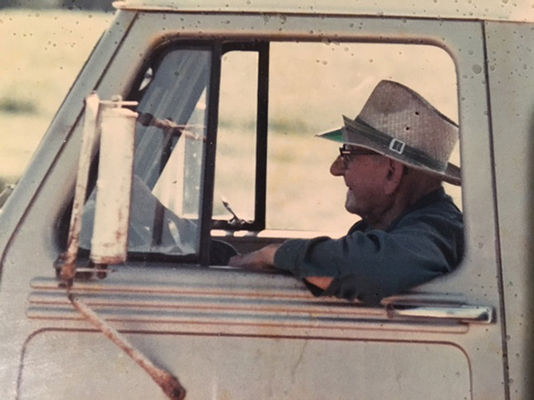Every day, each one of us is growing older and growing wiser and more experienced. In so many ways, we get better as we age.
But too often, we only associate aging with decline, debility, and eventual death. This fatalistic view is so pervasive that it can actually harm our health, especially when older people or their health care providers dismiss fixable problems as “just getting old.”
Let me share an illustrative story about my dear Grandpa Frank.
Grandpa Frank was a dairy farmer his entire life and his day usually consisted of going to the barn to milk the cows in the very early morning and evening, with many trips in between. His three sons helped him, as did his four grandsons. He usually drove the tractor during haying season. He was especially fond of his truck that got him back and forth between his farm and his son Harold’s farm. All of them lived on the same street – North Creek Road.
My husband and I had moved to Boston, but we loved to visit him. On one of our trips home, when he was 76 years old, we went into the living room where he was sitting in his favorite chair. Very uncharacteristically, he did not rise to greet us, but instead stayed seated.
He told us that his leg was bothering him, but that he had been to the doctor, his chiropractor, who took x-rays and said there was nothing wrong—he needed to get used to it because he was “getting on in age.” Grandpa Frank had not been to the barn in over two weeks—something that made him incredibly sad.
And then he showed me his x-rays. As a nurse, I could see that he had a hip fracture. “Grandpa, your hip is broken!” He looked up and said, “You don’t say,” and agreed to go to the hospital emergency department and get it looked at again. He had surgery that week and shortly after was able to return to the barn and the work he loved. He was able to enjoy that work for seven more years, and died at age 83 of an abdominal aortic aneurysm, for which he refused surgery.
My Grandpa Frank’s experience is far too common. Judith Graham, a reporter who produces an excellent Navigating Aging series for Kaiser Health News (which we support), talked to several colleague experts in the field who describe the mistaken assumptions that people and their health care providers often have about getting older and what should be expected.
They rightly point to fatigue, appetite loss, weakness, and depression as symptoms of potentially serious, yet addressable, health concerns that frequently go unattended because of ageist attitudes.
Dismantling the persistent ageist views that pervade our society is something that I and The John A. Hartford Foundation are passionate about. We are supporting the Reframing Aging communications project, in partnership with several other organizations. And we are working hard to create age-friendly health systems that have trained health care professionals and staff who recognize that age is not a diagnosis.
Please take a moment to share this post, as well as Judith Graham’s news piece, “You’re Not Just ‘Growing Old’ If This Happens To You,” to help others better understand the harm that ageism continues to do in our society. We should all have the opportunity to age well, just like my Grandpa Frank.

